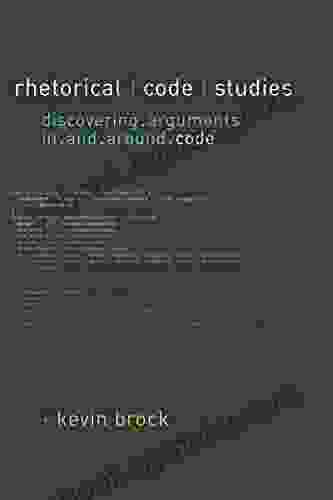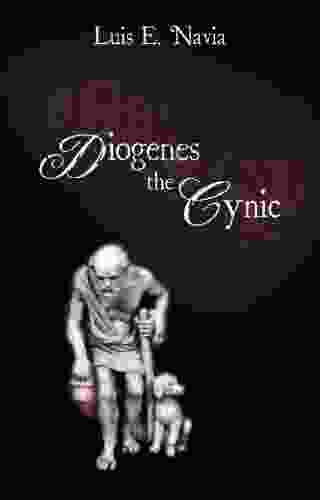Discovering Arguments in and Around Code: Sweetland Digital Rhetoric

Code is not just a set of instructions for a computer. It can also be a powerful tool for making arguments. In her book, *Digital Rhetoric*, Elizabeth Sweetland argues that code is a form of rhetoric that can be used to persuade, inform, and entertain.
4.7 out of 5
| Language | : | English |
| File size | : | 2302 KB |
| Text-to-Speech | : | Enabled |
| Screen Reader | : | Supported |
| Enhanced typesetting | : | Enabled |
| Print length | : | 232 pages |
Sweetland identifies three main types of arguments that can be found in code:
- Functional arguments are made through the code's functionality. For example, a program that sorts data into alphabetical Free Download is making an argument for the importance of organization.
- Structural arguments are made through the code's structure. For example, a website that uses a hierarchical menu is making an argument for the importance of clear navigation.
- Aesthetic arguments are made through the code's appearance. For example, a website that uses bright colors and large fonts is making an argument for the importance of visual appeal.
Sweetland argues that these three types of arguments can be used to create a wide range of persuasive effects. For example, a functional argument can be used to convince someone to buy a product, a structural argument can be used to convince someone to visit a website, and an aesthetic argument can be used to convince someone to read a blog post.
Sweetland also argues that code can be used to make arguments about itself. For example, a program that generates code can be seen as an argument for the power of code. A program that analyzes code can be seen as an argument for the importance of code quality.
Sweetland's book is a valuable resource for anyone who is interested in the relationship between code and rhetoric. She provides a clear and concise overview of the different types of arguments that can be found in code, and she offers a number of examples of how code can be used to make persuasive arguments.
Examples of Arguments in Code from Sweetland Digital Rhetoric
Sweetland provides a number of examples of arguments in code in her book. Here are a few of the most interesting:
- The Google search engine uses a complex algorithm to rank websites. This algorithm is based on a number of factors, including the website's content, popularity, and backlinks. The algorithm is constantly being updated, and it is one of the most closely guarded secrets in the tech industry. However, Sweetland argues that the algorithm is a form of rhetoric that makes an argument about the importance of relevance and authority.
- The Facebook news feed is another example of code that makes an argument. The news feed is designed to show users the most relevant and interesting stories from their friends and family. However, Sweetland argues that the news feed also makes an argument about the importance of social connection and community.
- The Our Book Library recommendation engine is a third example of code that makes an argument. The recommendation engine uses a variety of data to recommend products to users. This data includes the user's past Free Downloads, their browsing history, and their demographics. Sweetland argues that the recommendation engine is a form of rhetoric that makes an argument about the importance of personalization and convenience.
These are just a few examples of the many arguments that can be found in code. Sweetland's book provides a valuable resource for anyone who is interested in learning more about this important topic.
Code is a powerful tool that can be used to make a wide range of arguments. In her book, *Digital Rhetoric*, Elizabeth Sweetland provides a clear and concise overview of the different types of arguments that can be found in code. She also offers a number of examples of how code can be used to make persuasive arguments.
Sweetland's book is a valuable resource for anyone who is interested in the relationship between code and rhetoric. It is a must-read for anyone who wants to learn more about how code can be used to make arguments and persuade others.
4.7 out of 5
| Language | : | English |
| File size | : | 2302 KB |
| Text-to-Speech | : | Enabled |
| Screen Reader | : | Supported |
| Enhanced typesetting | : | Enabled |
| Print length | : | 232 pages |
Do you want to contribute by writing guest posts on this blog?
Please contact us and send us a resume of previous articles that you have written.
 Book
Book Novel
Novel Page
Page Chapter
Chapter Text
Text Story
Story Genre
Genre Reader
Reader Library
Library Paperback
Paperback E-book
E-book Magazine
Magazine Newspaper
Newspaper Paragraph
Paragraph Sentence
Sentence Bookmark
Bookmark Shelf
Shelf Glossary
Glossary Bibliography
Bibliography Foreword
Foreword Preface
Preface Synopsis
Synopsis Annotation
Annotation Footnote
Footnote Manuscript
Manuscript Scroll
Scroll Codex
Codex Tome
Tome Bestseller
Bestseller Classics
Classics Library card
Library card Narrative
Narrative Biography
Biography Autobiography
Autobiography Memoir
Memoir Reference
Reference Encyclopedia
Encyclopedia Walter Foster
Walter Foster Kevin Belton
Kevin Belton Mitchell Stephens
Mitchell Stephens Peter Moruzzi
Peter Moruzzi Steven Finlay
Steven Finlay Katy Hudson
Katy Hudson Mike Fischer
Mike Fischer Justin Driver
Justin Driver Michael Lantrip
Michael Lantrip Katherine Locke
Katherine Locke Kate Brian
Kate Brian Richard Wilson
Richard Wilson Peter Engel
Peter Engel Robert Lipsyte
Robert Lipsyte Kris Schnee
Kris Schnee Matthew Capala
Matthew Capala June Emerson
June Emerson Katherine Scarim
Katherine Scarim Justine Bateman
Justine Bateman Karen Deyoung
Karen Deyoung
Light bulbAdvertise smarter! Our strategic ad space ensures maximum exposure. Reserve your spot today!

 Christopher WoodsUncover the Enchanting Emirate with the Pocket Rough Guide Dubai Travel Guide...
Christopher WoodsUncover the Enchanting Emirate with the Pocket Rough Guide Dubai Travel Guide...
 Reed MitchellLife, Clay, and Everything: A Journey of Artistic Expression and Deep Meaning
Reed MitchellLife, Clay, and Everything: A Journey of Artistic Expression and Deep Meaning
 Jermaine PowellCan the Resource Curse Be Lifted? Unlocking the Potential of Natural Wealth
Jermaine PowellCan the Resource Curse Be Lifted? Unlocking the Potential of Natural Wealth
 W. Somerset MaughamOvercome Loneliness and Embrace Connection with "If Felt Alone" by Patrick...
W. Somerset MaughamOvercome Loneliness and Embrace Connection with "If Felt Alone" by Patrick... Victor TurnerFollow ·2.9k
Victor TurnerFollow ·2.9k Dillon HayesFollow ·16.8k
Dillon HayesFollow ·16.8k Deion SimmonsFollow ·6.8k
Deion SimmonsFollow ·6.8k Al FosterFollow ·17.8k
Al FosterFollow ·17.8k Eugene ScottFollow ·19.4k
Eugene ScottFollow ·19.4k Timothy WardFollow ·17.7k
Timothy WardFollow ·17.7k Casey BellFollow ·9.2k
Casey BellFollow ·9.2k Jason HayesFollow ·18.7k
Jason HayesFollow ·18.7k

 George Orwell
George OrwellPandemic with Dogs: Two Essays
By Susannah Charleson In the midst of...
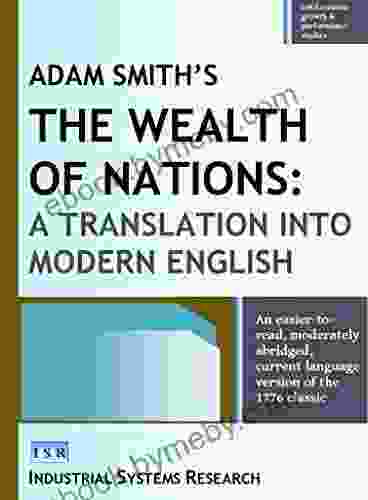
 Leo Mitchell
Leo MitchellAdam Smith's The Wealth of Nations: A Classic Treatise on...
Adam Smith's The...
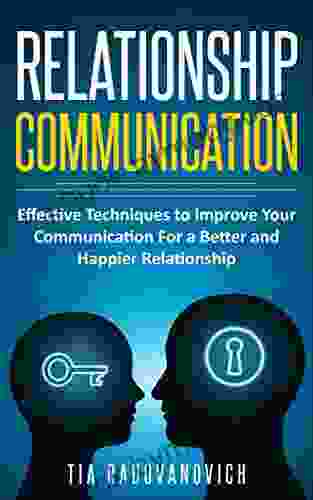
 Cade Simmons
Cade SimmonsUnlock Your Communication Potential: Effective Techniques...
Communication is a fundamental...

 Floyd Richardson
Floyd RichardsonFire and Ashes: Success and Failure in Politics
Fire and Ashes: Success and...
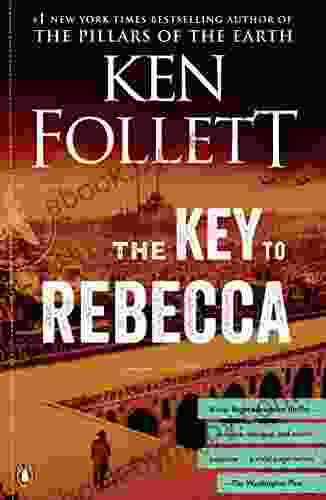
 Oliver Foster
Oliver FosterUnlock the Enchanting Mystery of Ken Follett's "The Key...
Embark on a captivating literary journey into...
4.7 out of 5
| Language | : | English |
| File size | : | 2302 KB |
| Text-to-Speech | : | Enabled |
| Screen Reader | : | Supported |
| Enhanced typesetting | : | Enabled |
| Print length | : | 232 pages |


